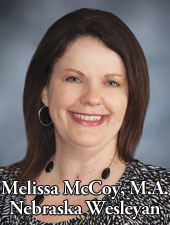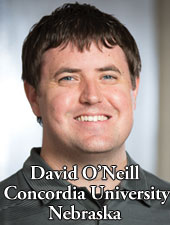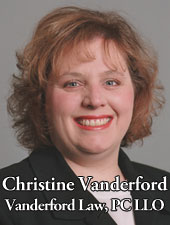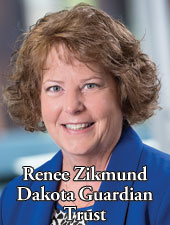While life is often incredibly unpredictable, there are also plenty of things you can (and should) plan for in advance. When considering the planning essentials as far as one’s professional career is concerned, we begin with choosing our career path and pursuing our education in that area. Moving forward throughout this career path, and while it’s certainly common to change directions and return to education in another area, we also begin to plan for our retirement down the line as well as ultimately handling estate planning for the benefit of ourselves and our family members.
Education and Career Planning
Establishing a solid foundation for the future of your career, no matter whether you are just graduating from high school or moving in a new direction years down the line, generally requires an investment in furthering your education. On the planning side, there are many things to consider when making decisions about what degree program best fits your short-term and long-term goals.
 Melissa McCoy, M.A. Director of Wesleyan Advantage at NWU, advises, “There are some basics to start with that can help students narrow down the field, such as asking, ‘Does the school have the degree program that interests me? What is the cost? How long will it take me to complete a degree?’ In addition, students need to think about what kind of program is going to provide them with the best experience, the best outcome, and the best value.
Melissa McCoy, M.A. Director of Wesleyan Advantage at NWU, advises, “There are some basics to start with that can help students narrow down the field, such as asking, ‘Does the school have the degree program that interests me? What is the cost? How long will it take me to complete a degree?’ In addition, students need to think about what kind of program is going to provide them with the best experience, the best outcome, and the best value.
Furthermore, it’s important for students to know what they want to get out of their education. Do they want interaction with professors and other students, do they want the structure and atmosphere of a campus environment, or do they prefer an online program? Are they trying to make a career change and, if so, what resources do colleges provide to assist with that process? What is the reputation of the school being considered? What do others say about the school and its programs?
Students should also be prepared to ask questions about hidden costs of education such as books, parking permits, and various fees. Those who are planning to return to school should also prepare themselves for the additional time commitment in addition to the time spent in the classroom. For example, our typical student reports spending 8-12 hours per week studying outside of class. It helps if students have a plan for how to work that time into their schedules. Could a spouse, partner, relative, or friend watch the children for several hours a week so that there is quiet time for study? Could a couple lunch hours a week be spent reading assigned texts? Is there a support system in place for taking care of family obligations when a paper is due or there is an exam on the horizon?
As for Nebraska Wesleyan University, we have a range of degree offerings for adult and graduate students, featuring classes that meet one night a week in 8-week or sometimes even 5-week sessions. Furthermore, we are much more affordable than people think. Adult undergraduates who take classes at night pay just $265 per credit.
NWU also offers a full range of career services to students. In addition to counselors in our career center that assist students with job searches, resumes, and interviewing skills, we also offer classes that students preparing to enter the job market can take to further hone their job-seeking skills.
Above all, I would suggest that when deciding on a school, students should visit the school and talk to advisors and admissions counselors face-to-face. That will give them a better feel for how well that institution is going to meet their needs.”
 David O’Neill, Enrollment Specialist at Concordia University Nebraska, further advises, “Lately, I’ve seen a lot of articles about how much more money you can earn in the long run if you start investing early as opposed to waiting. In my mind, education is the same way. The earlier you continue your education, the earlier you can start reaping the rewards.
David O’Neill, Enrollment Specialist at Concordia University Nebraska, further advises, “Lately, I’ve seen a lot of articles about how much more money you can earn in the long run if you start investing early as opposed to waiting. In my mind, education is the same way. The earlier you continue your education, the earlier you can start reaping the rewards.
Our MBA program is built so that you can take what you learn in the classroom and apply it the next day in the workplace, effectively increasing your worth the second you step into Concordia’s classroom. Whatever your motivation is—a higher salary, networking opportunities, job advancement, or new skill development—Concordia’s MBA program can help.
Plus, Concordia is committed to taking the hassle out of continuing your education. We make it as easy as possible to apply, start classes, and pay for your education. You don’t have to take the GMAT, and we’ll even order and pay for your textbooks along with providing you with an iPad to enhance your experience. These are just a few things of the reasons that we refer to our program at Concordia as Lincoln’s hassle-free MBA program. With Concordia’s classes offered in Lincoln and online to fit into your life as conveniently as possible, there hasn’t been a better time to start investing in your most important asset—you.”
For those who have started a degree program but were subsequently unable to complete it, the prospect of finding out the best way to finish with a degree or to transfer credits to another institution can be daunting. However don’t be fooled, we’ve come a long way and it really doesn’t have to be that hard these days.
A new website developed by the University of Nebraska, in collaboration with the Nebraska State College System and Nebraska Community College Association, provides students in the state with a convenient one-stop shop for researching course transferability between Nebraska’s public higher education institutions.
Transfer Nebraska, which can be accessed at http://transfer.nebraska.edu, aims to help Nebraska students better understand their options, plan for their future, and stay on the path to a college degree so they can be successful in the workforce. The site’s searchable database offers information on 64,500 course equivalences among the four NU campuses, the Nebraska College of Technical Agriculture, the three state colleges, and eight community and tribal colleges. Students looking to transfer to a Nebraska institution from some regional and private institutions can also find course equivalency information on the site.
Susan Fritz, University of Nebraska executive vice president and provost, says that Transfer Nebraska opens doors for students who want to blend their college education. Nebraska’s public higher education institutions are committed to increasing access and affordability and informing students about their transfer opportunities in a consistent and collaborative way is one step toward that goal.
“Nebraska’s economic success depends on our ability to produce a highly skilled, highly educated workforce,” Fritz says. “The University of Nebraska, state colleges and community colleges all play a critical role in increasing educational attainment in our state. Transfer Nebraska is an important tool that will help students earn the degree that is right for them. We’ve moved from 16 different mechanisms for informing students about transfer options to a single system that gives current and consistent information. The university is proud to collaborate with our public higher education partners in bringing this resource to Nebraska students.”
Fritz noted that given high mobility rates among college students today, there is a clear need for Nebraska’s higher education institutions to work together to ensure students understand which courses may count toward a degree at a different school. About 5,000 students transfer into and between the state’s public higher education institutions each year. A quarter of first-time, full-time students who enrolled at UNL, UNO or UNK in fall 2007 had graduated from another institution or were still enrolled at another institution six years later.
Nationally, one-third of all U.S. college students switch institutions at least once before earning a degree, according to a 2012 report from the National Student Clearinghouse Research Center.
With access to clear information on transferability, students can plan more effectively and have a smoother pathway if they decide a different institution might be a better fit, Fritz says. Adult students looking to return to school can also research how courses they took in the past may count toward a degree, and high school students who have earned college credit can explore where they can apply that credit. The inclusion of regional institutions in the site’s database also could help Nebraska attract more students to the state.
Nebraska State College System Chancellor Stan Carpenter says, “Chadron, Peru and Wayne state colleges have long partnered with our postsecondary colleagues across Nebraska to serve students and their families. We are now equally committed to the successful launch of Transfer Nebraska, a web-based platform which has been designed to provide easy access to information regarding the transfer of credits between public institutions. As the result of hard work and the commitment of numerous individuals at Nebraska’s 16 public institutions, Transfer Nebraska is now live and ready to help students plan their futures, become successful in the workforce, and grow into productive and engaged citizens across Nebraska.”
Dennis Baack, executive director of the Nebraska Community College Association, says, “This Transfer Nebraska website will allow every student in Nebraska to have at their fingertips information about the transferability of their college work to make it easier for them to create a career path to their education goals. The community colleges would like to thank the University of Nebraska for its leadership on this very meaningful project.”
Retirement and Estate Planning
Later on down the line, ideally once you’ve enjoyed a long and successful career, retirement moves onto the horizon. Planning for retirement all throughout your career will allow you to enjoy your senior years without having to constantly worry about money running out or leaving your family financially responsible for your care or funeral arrangements among other things.
 Christine Vanderford, of Vanderford Law, PC LLO, advises, “Coordinating a legal plan and a financial plan is the key to efficient tax planning and long term success in planning for retirement and future generations. Be sure the professionals you trust, i.e. your attorney, financial advisor, CPA, and trust officer are on the same page with your overall financial goals and expectations so that they can work together to advise you toward that end. Everyone should have basic estate planning, including a Last Will and Testament, Power of Attorney, and Advanced Health Care Directive, including a Living Will. We, at Vanderford Law, can assist individuals at any age, or families at any stage of life. People need to make sure they take care of their loved ones, as death makes no appointment. In the event we are not here tomorrow, the right documents, written effectively, can provide direction, control and stability over financial matters so that life can continue for those left behind. Furthermore, technology has made the advent of multiple passwords for online accounts and activities a necessity. Making sure those are documented somewhere safe is essential to picking up the pieces after someone passes away. I advise everyone to compile a master list and keep it updated, and notify those who need to be aware of the information regarding how to access it.”
Christine Vanderford, of Vanderford Law, PC LLO, advises, “Coordinating a legal plan and a financial plan is the key to efficient tax planning and long term success in planning for retirement and future generations. Be sure the professionals you trust, i.e. your attorney, financial advisor, CPA, and trust officer are on the same page with your overall financial goals and expectations so that they can work together to advise you toward that end. Everyone should have basic estate planning, including a Last Will and Testament, Power of Attorney, and Advanced Health Care Directive, including a Living Will. We, at Vanderford Law, can assist individuals at any age, or families at any stage of life. People need to make sure they take care of their loved ones, as death makes no appointment. In the event we are not here tomorrow, the right documents, written effectively, can provide direction, control and stability over financial matters so that life can continue for those left behind. Furthermore, technology has made the advent of multiple passwords for online accounts and activities a necessity. Making sure those are documented somewhere safe is essential to picking up the pieces after someone passes away. I advise everyone to compile a master list and keep it updated, and notify those who need to be aware of the information regarding how to access it.”
 “Oftentimes people may delay doing any estate planning because it may feel overwhelming to plan for the unknown,” explains Renee Zikmund, Vice President and Senior Trust Officer at Dakota Guardian Trust. “However, I’ve seen too many situations where families scramble to figure out what to do as a result of mental incapacity, health problems, or an unexpected death. When those things happen it is often too late for effective planning. I always tell families that although we don’t have a crystal ball to see the future, we can develop a plan for today, making changes later as needed.
“Oftentimes people may delay doing any estate planning because it may feel overwhelming to plan for the unknown,” explains Renee Zikmund, Vice President and Senior Trust Officer at Dakota Guardian Trust. “However, I’ve seen too many situations where families scramble to figure out what to do as a result of mental incapacity, health problems, or an unexpected death. When those things happen it is often too late for effective planning. I always tell families that although we don’t have a crystal ball to see the future, we can develop a plan for today, making changes later as needed.
Planning for how to financially care for your spouse, children and grandchildren can be a daunting process. It may be helpful to talk with a professional that settles and administers estates regularly. Such a conversation may help you consider your financial concerns and goals in a new light and assist with proactive problem solving. An estate planning attorney or trust officer may also ensure your planning continues to move forward and does not stall out before you finish this very important process.
You may elect to establish a trust for any number of reasons, including providing financial support for family members during your lifetime and beyond and ensuring your decisions can be implemented in the event of illness or incapacity. Trusts may ensure a beloved pet is cared for or provide support for your favorite charity. If you have a family member that has special needs, you can establish a trust to ensure he or she is supported and protected long-term. You may also consider whether you want to ensure that specific items are given to the special people in your life, such as art, jewelry, gun collections and classic cars, just to name a few. Indeed planning for the future can be a vital and rewarding process.
Trusts are a preferred tool for wealth preservation and transfer across generations, and at the onset it may be feasible to serve as your own trustee. Naming Dakota Guardian Trust as successor trustee may provide extraordinary peace of mind, so that you are assured that all administrative and financial responsibilities will be handled appropriately and in a timely manner.
Dakota Guardian can also help you find an attorney with whom you are comfortable, as it is so critical to find someone that will work well with you and your family. Once your planning is complete, you should also review any beneficiary designations for insurance policies or retirement plans so that these align with your planning.
We welcome individuals at any age to stop in or call and visit with us as you begin your planning. And moving forward, it is so important to continue the conversation. Settling an estate is such personal work, and it is so much easier if we understand your goals and needs. We will encourage you to share stories about your family members so that we have a feel for who they are. At Dakota Guardian Trust it is of the utmost importance to make sure we settle your estate and take care of your assets and your family according to your wishes.
You can never plan for all things, but having something in place is always better than nothing.”
Indeed, truer words were never spoken and although there are plenty of things that haven’t been touched on that are just as important to plan for diligently and well in advance, these basics will help you lay the foundation for your future as well as the future of your family.

